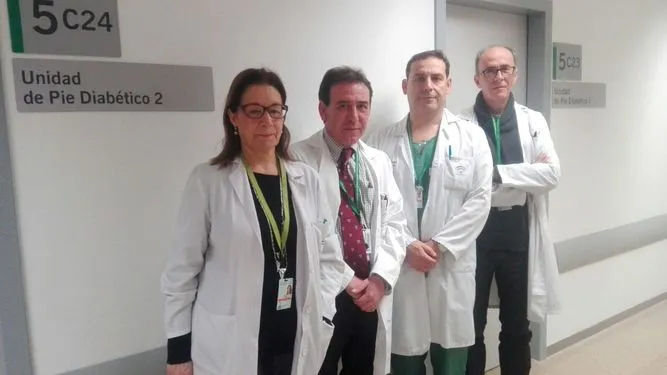The University Hospital Complex of Granada has recently launched a specific consultation for the treatment and prevention of diabetic foot, an affectation that concerns about 25% of diabetes patients.This new consultation, located in the Hospital of the Health Campus, is coordinated by the vascular surgery and endocrinology services, and those of rehabilitation and traumatology also participate.
It is, therefore, a novelty in the integral approach of this pathology with the creation of a multidisciplinary unit, since these patients were previously treated by different services without comprehensive coordination.
The diabetic foot is the infection, ulceration or destruction of deep foot tissues associated with neuropathy or peripheral arterial disease in the lower extremities of patients with diabetes.The main objective of this new benefit is to reduce the rate of amputations in this group of patients, which cause significant invalidating damage and to the quality of life.
For the implementation of this service, the involvement of primary care is essential.With this new circuit, patients are derived from health centers to this consultation in order to be seen in a unique act by endocrine and vascular surgeons.
In this first pilot phase, which will last approximately six months, two health centers, albolote and Zaidín are participating.From these centers, the patient is derived to the diabetic foot consultation where, in the same act, metabolic control is performed by the endocrine and neuropathic studies, -egeological and neurological-, by the vascular surgeon.Depending on the assessment performed, the patient is derived well to rehabilitation, if he requires orthopedic prescriptions, or through traumatology, if surgical intervention is considered necessary.
This unit is made up of vascular surgeons José Moreno and José Damián Herrera, and by the endocrinologists Pablo López and Martín López, with the coordination of unity directors, Luis Miguel Salmerón and Elena Torres, respectively.
This initiative is part of the Comprehensive Diabetes Plan of the Board of Health, which is aimed at improving the coordination of health actions and resources available to serve people with diabetes.


